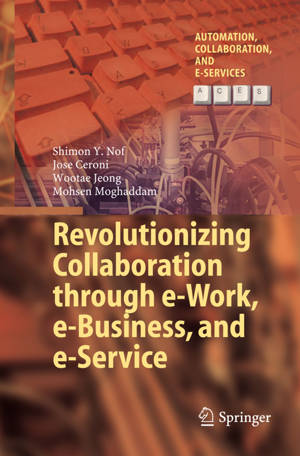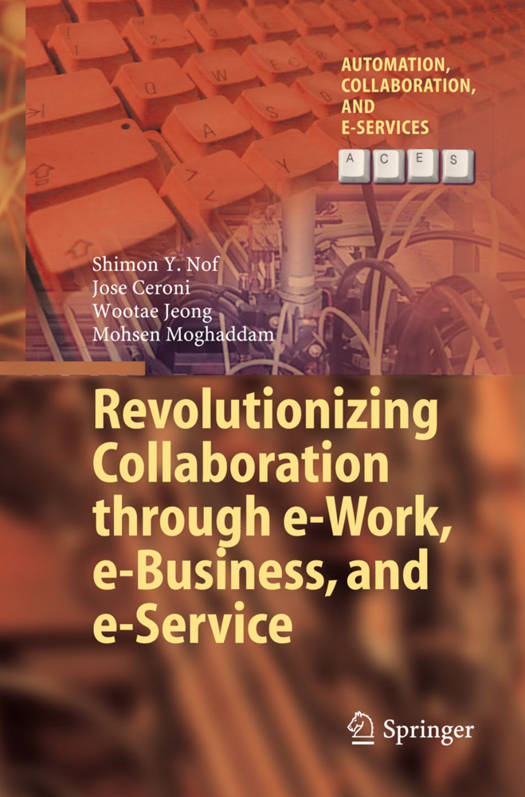
- Afhalen na 1 uur in een winkel met voorraad
- Gratis thuislevering in België vanaf € 30
- Ruim aanbod met 7 miljoen producten
- Afhalen na 1 uur in een winkel met voorraad
- Gratis thuislevering in België vanaf € 30
- Ruim aanbod met 7 miljoen producten
Zoeken
Revolutionizing Collaboration Through E-Work, E-Business, and E-Service
Shimon Y Nof, Jose Ceroni, Wootae Jeong, Mohsen Moghaddam
€ 105,45
+ 210 punten
Uitvoering
Omschrijving
Collaboration in highly distributed organizations of people, robots, and autonomous systems is and must be revolutionized by engineering augmentation. The aim is to augment humans' abilities at work and, through this augmentation, improve organizations' abilities to accomplish their missions. This book establishes the theoretical foundations and design principles of collaborative e-Work, e-Business and e-Service, their models and applications, design and implementation techniques. The fundamental premise is that without effective e-Work and e-Services, the potential of emerging activities, such as e-Commerce, virtual manufacturing, tele-robotic medicine, automated construction, smart energy grid, cyber-supported agriculture, and intelligent transportation cannot be fully materialized. Typically, workers and managers of such value networks are frustrated with complex information systems, originally designed and built to simplify and improve performance. Even if the human-computer interface for such systems is well designed, the information and task overloads can be overwhelming. Effective delivery of expected outcomes may not occur. Challenges and emerging solutions in the context of the recently developed CCT, Collaborative Control Theory, are described, with emphasis on issues of computer-supported and communication-enabled integration, coordination and augmented collaboration. Research results and analyses of engineering design methods and complex systems management techniques are explained and illustrated.
Specificaties
Betrokkenen
- Auteur(s):
- Uitgeverij:
Inhoud
- Aantal bladzijden:
- 430
- Taal:
- Engels
- Reeks:
- Reeksnummer:
- nr. 2
Eigenschappen
- Productcode (EAN):
- 9783662457764
- Verschijningsdatum:
- 29/06/2015
- Uitvoering:
- Hardcover
- Formaat:
- Genaaid
- Afmetingen:
- 156 mm x 234 mm
- Gewicht:
- 798 g

Alleen bij Standaard Boekhandel
+ 210 punten op je klantenkaart van Standaard Boekhandel
Beoordelingen
We publiceren alleen reviews die voldoen aan de voorwaarden voor reviews. Bekijk onze voorwaarden voor reviews.











